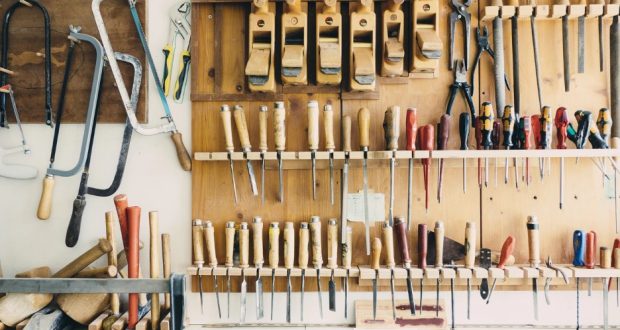By: Guest Author
Published: April 13, 2021
Written By Ainsley Lawrence- Guest Contributor
For the majority of our working career, we fantasize about the day we’ll retire and all the things we’ll finally have a chance to do. However, oftentimes, once finally crossing over that long-awaited finish line, people feel lost about how they should spend their free time.
These feelings are fair considering the average adult spends over 13 years of their total life at work. Achieving your retirement goals can be just as scary and disorientating as it is exciting. Luckily, these feelings can subside as you begin figuring out this new chapter. To foster a sense of fulfillment again, Taking on new projects and hobbies is one great way to re-kindle a sense of fulfillment. From home renovations to stepping outside your comfort zone, enjoying your retirement doesn’t have to be complicated.
Proceed With Caution
Retirement likely means you’ll be spending more time at home. This means, if you haven’t already, you’ll start noticing those home projects you’ve shelved all these years. These can be fruitful improvement projects that are not only satisfying to finally start but completing them could increase the value of your home. This is a great possibility if you decide to sell in the coming years.
Before you bust out the sledgehammer though, it’s important to create a plan. Beyond your budget, researching more about the project you’re trying to accomplish can give you a clearer idea of the tasks you’ll be taking on. It may be the case that you need the services of experts. It’s better to figure that out beforehand rather than in the middle of a renovation.
It’s also worth compiling a list of everything you’ll need, including basic, essential home improvement tools such as:
- Handsaw: These are really useful for sawing awkward pieces or working in hard-to-reach places. You can also easily replace the blades as you need.
- Putty Knife: Having one of these makes projects like applying wallpaper and caulking easier, faster, and with less mess.
- Adjustable Wrench: It’s recommended to have both a six-inch wrench and a 10-inch wrench on hand. The shorter one for cramped spaces and the other for better leverage on large or tighter bolts.
- Utility Knife: Think of a utility knife as the swiss-army knife of DIY projects and keep one in your back pocket. Having to constantly hunt down a pair of scissors or knife gets old quickly and wastes time. Just be wary of the sharp blade kicking around.
Now that you have the time, it’s worth slowing down and ensuring you have all the right plans and tools for your projects. Furthermore, your safety should always be a top priority and you don’t want to potentially put yourself in danger.
Try Something New
The possibilities as you enter retirement are truly limitless. However, because of this sense of unlimited possibilities, it often has the opposite effect and overwhelms us to the point we struggle to make a decision. One solution to this is seeking hobbies and projects that fall outside your sense of familiarity. Metal detecting is a prime example.
During retirement, it’s important to find activities that offer both vigorous physical activity and mental activity. One hobby retirees can start that incorporates both of these needs is metal detection. Metal detecting engages the mind, improves focus, and presents the opportunity to explore new areas and terrains. You also have the potential to find valuable hidden treasures.
The issue with hobbies such as metal detecting, however, is people often hesitate to start them because it can feel uncomfortable engaging in less “popular” activities. However, not every person who retires wants to take up speed walking around the neighborhood or fly fishing.
Whether it’s metal detecting, geo-caching, or stone-skipping, stepping outside your comfort zone can have a lot of benefits as a retiree. Forget the judgments of others and try the things that bring you joy. Not only for the sake of your health but to introduce you to new people and open up the door to new and exciting experiences.
Get Organized with DIY Projects
As you begin figuring out your interest and hobbies, you’ll likely start realizing you also need to make some adjustments to your living space. For example, winter activities like cross country skiing and snow shooing are great hobbies to start during retirement. They present the opportunity to get physical exercise, enjoy the fresh air, and can be less harsh on your joints compared to normal skiing. However, activities like this also involve investing in proper gear and finding ways to accommodate and store said gear. This means a great project to take on is figuring out storage solutions for all of your new hobbies.
Want to take up snowmobiling? Consider installing lockers to store all your winter gear in one organized place. Want to start sailing the world? Building something like an aluminum carport or boat deck on your property is an affordable way to safely store your boat and maintain its condition. Want to take up painting or sewing? Why not transform part of your garage to be your personal studio? At the end of the day, projects don’t have to be expensive or take years to finish. If it improves your everyday life then it’s worth starting. You also may not realize your life or home is missing something until you enter retirement and actually have time to reflect and consider all the possibilities in front of you.
Retirement is the time to pursue those things we’ve had to put on the back burner for so long. You also may not realize your life or home is missing something until you enter retirement and finally have time to reflect and consider all the possibilities in front of you. This of course includes all the home projects and hobbies you’ve been meaning to start. Make sure to do plenty of research beforehand, invest in the right equipment, and most importantly, have fun and enjoy this new stage of life.
 This article is contributed by: Ainsley Lawrence is a freelance writer that lives in the Northwest region of the United States. She has a particular interest in covering topics related to good health, balanced life, and better living through technology. When not writing, her free time is spent reading and researching to learn more about her cultural and environmental surroundings. You can follow her on Twitter @AinsleyLawrenc3
This article is contributed by: Ainsley Lawrence is a freelance writer that lives in the Northwest region of the United States. She has a particular interest in covering topics related to good health, balanced life, and better living through technology. When not writing, her free time is spent reading and researching to learn more about her cultural and environmental surroundings. You can follow her on Twitter @AinsleyLawrenc3
The views expressed herein this article, written by a guest contributor, do not necessarily represent those of the Red Hot Mamas organization. The content is for informational purposes and should not substitute the advice of your doctor.
 Red Hot Mamas In Charge of Change.
Red Hot Mamas In Charge of Change.




